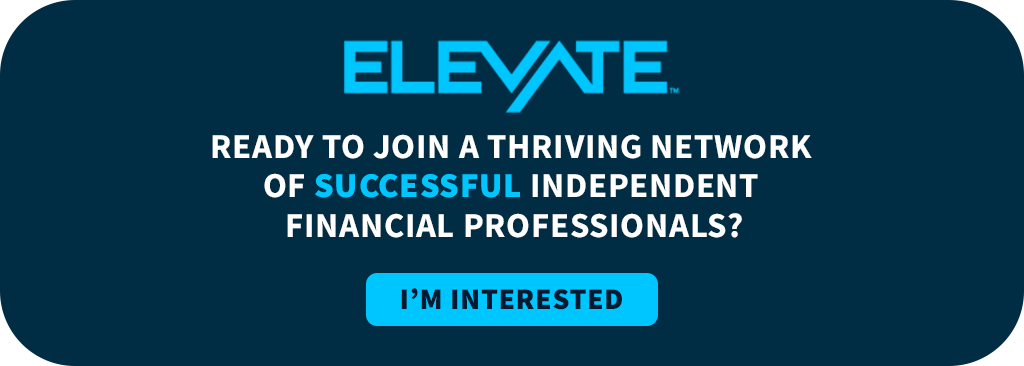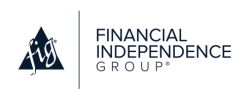Updated April 4, 2024, at 11:08 AM
Choosing the Best Insurance Marketing Organization
Over my 20-plus year career in the financial services industry, I’ve had the opportunity to see the industry grow and evolve in so many ways. For example:
- In the late 1990s, I saw variable annuities (VAs) become a popular retirement and investment vehicle.
- In the 2000s there was tremendous growth and innovation in exchange traded funds (ETFs). And in the world of annuities, I saw the creation of withdrawal benefit and lifetime income benefit riders that fueled the expansion of the variable annuity marketplace.
- Since the financial crisis of 2008, there has been a convergence between variable annuities and fixed indexed annuities (FIAs). The annuity industry has seen a steady decline in VA market share while, at the same time, a steady increase in FIA market share. There are numerous factors that contributed to these trends. For starters, an aging retiree population that prefers guarantees over growth potential. Innovation in FIA-crediting strategies and living benefit riders, along with FIAs gaining wider acceptance also play a role.
How My Role Has Changed
Being part of an elite fixed annuity distributor and marketing organization, I’ve seen how the role of marketing organizations has evolved. When I first joined Financial Independence Group (FIG), most of my time was spent working with insurance agents that didn’t have a broker-dealer or registered investment advisor (RIA) affiliation.
The discussions were more focused on selling versus planning. The FIA products were simple and straightforward. Marketers recruited to products based on crediting rates and features. The role of even the best insurance marketing organization (IMO) was to provide basic support for new business and contracting.
Today, most of the advisors I support are either registered reps, investment advisory reps, or both. More advisors and financial institutions view insurance products as an asset class that can be molded into the financial planning process. The popular FIA products of today are sophisticated financial instruments. They even offer ETF-based crediting strategies designed to manage targeted levels of volatility.
The role of the modern-day IMO marketer is also more complex. We still serve as a traditional product wholesaler, but we also promote the value-added services we continue to innovate.
Overcoming Misconceptions
Due to the influx of advisors from the securities side of the industry, I’ve had to overcome the perception that IMOs are product brokers instead of business partners. I’ve adjusted my “on-boarding” process to include a due diligence component to highlight what differentiates us from our competition.
I offer information on the three verticals of our business:
- Products research and development
- Marketing and branding
- Business development
The result is normally a feeling of surprise about our high level of support to wealth management firms.
I often hear from advisors that start to incorporate insurance products into their planning process and are “shopping” IMOs. I strongly recommend that they conduct an intensive due diligence process to ensure they partner with the firm that’s best for them. The IMO relationship should be treated with the same level of care as their broker-dealer (BD) or RIA relationship.
Case in point – I’m writing this on a flight to visit an advisor to discuss partnering with us. This trip is like many trips I’ve taken over the last few years. The advisor is a registered rep and investment advisor rep (IAR). He was referred to me by another rep from his BD who’s been partnering with us for the last five years. He has some experience working with an IMO, but to this point, it has been purely transactional.
In the past, when he looked at a life insurance or annuity product, he’d contact a firm close to him and they’d help him get appointed to sell a specific product. This process has happened a couple times a year for the last decade or so.
During my initial conversations with this advisor, he became intrigued about the value-added services and access to exclusive products that we offer. More importantly, his perception of what an IMO can do for him as a financial advisor has shifted.
He now understands that the right IMO partner can help provide better solutions to his clients and help him navigate an ever-changing financial services industry.
Choosing the Right IMO
At the end of these meetings, I regularly challenge the advisor to take the necessary time to determine what he would require from an IMO partner.
This process should include:
- Discussions with their BD or RIA principals
- Requesting endorsements or referrals from peers and colleagues
- Talking directly with annuity and life insurance carriers
- Visiting IMO home offices to get a true sense of each IMO’s culture.
I’m confident that when an advisor goes to the appropriate lengths to determine which IMOs are the best; which are legitimate financial institutions—they’ll find we’re at the top of the list.
Financial Independence Group, Inc. is an insurance marketing organization and does not serve in a broker-dealer or investment advisory capacity.


